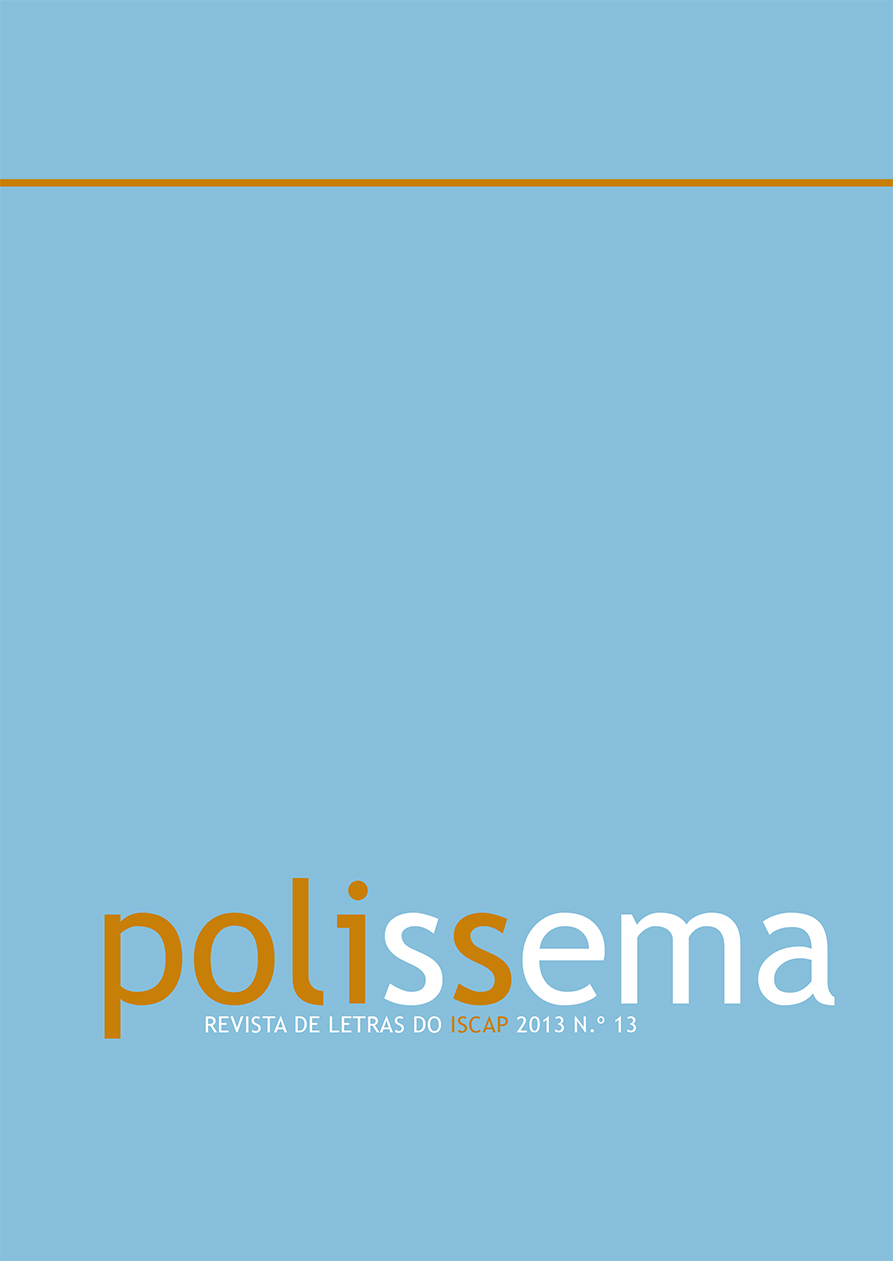MULTILINGUALISM AND INTERPRETING TRAINING FOR THE EU
DOI:
https://doi.org/10.34630/polissema.v0i13.3024Palabras clave:
Interpreters’ Consecutive and Simultaneous Interpreting Training, Community and Conference Interpreting, European InstitutionsResumen
This article context is located in the realm of multiculturalism and multilingualism
as characteristics of modern Europe. Addressing this issue, Peter Hans Nelde affirms that
“Language planning and language policy have thus become established in the cultural
planning of the EU members in such a way that they are now even recognized by
outsiders” (Nelde, 2007: 60). According to my interpretation of his words, the language
planning policy of the EU members should also pay attention to the second generation
immigrants who return to their parents' homeland, Portugal, which is the focus of this
article among bilinguals.
I wish to address bilingualism in the training of Conference Interpreting,
approaching multilingualism in the context of the European institutions as potential
working places for our students and trainees in their future professional field, that is,
interpreting. According to Joanne Winter and Anne Pauwels, “the second generations are
seen as threats or challenges to language maintenance as well as potential transformers for
bi/multilingualism and linguistic diversity” (Winter & Pauwels, 2007: 180). I approach the
issue from another perspective: the contribution that the second generation can give to the
market place after having been trained in higher education because bilinguals are
fundamental in the field of conference interpreting.
The current analysis is inspired by my own post-graduation as a student at ETI
(Geneva’s University “École de Traduction et Interprètation”), the experience of briefly
Matias, Helena Anacleto - Multilingualism and Interpreting Training for the EU 67-84
68 Polissema – Revista de Letras do ISCAP – Vol.13 - 2013
interpreting at the European Parliament, in the late nineteen eighties, in Brussels,
Luxembourg and Strasbourg, by the experience of training interpreters for twelve years and
from the analysis of specialized literature on the subject.
Descargas
Publicado
Cómo citar
Número
Sección
Licencia
Derechos de autor 2013 POLISSEMA – Revista de Letras do ISCAP

Esta obra está bajo una licencia internacional Creative Commons Atribución-NoComercial-SinDerivadas 4.0.


